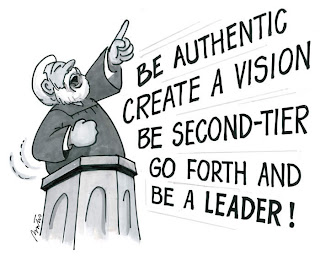Here's a random mind-dump of thoughts based on two years of observing and listening to people in transition.
- get brutally honest about why you're in transition - forget the fluff - it shouldn't take longer than 30 seconds to explain that the company downsized and you're gone - put yourself in a hiring manager's shoes. Keep in mind that everyone has a story and that after a while they all sound like BS!
- there is tons of damage out there! we don't meet many people who ever expect to be in transition at this point - AND IT HURTS! finding someone to talk to, to help focus their efforts, to remind them of what makes them great, different, funny, valuable is REALLY important. I'm only moderately good at that stuff but there are people here at Boardroom Metrics who are fantastic at it.
- don't make the mistake of being too unemployed - I know one fellow who's been sending updates to his network for over two years! and recently we had the opportunity to meet someone representing a networking group of senior unemployed folks - a group that takes being unemployed VERY seriously - weekly meetings, reports, speakers, etc. Apparently focusing on anything other than being aggressively unemployed (not our thing) was too radical. There's no text book (actually there's probably a ton) on this stuff - breaking out is a GOOD thing!
- recruiters are the first stop for everyone in transition. Not hearing back from them is EVERYONE'S story. Just remember that RECRUITERS DON'T CARE. It's not their job. Recruiters are paid by clients and they will care when you have something the client needs.
- stop being a generalist! almost everyone we meet is walking around with content, knowledge and experience that makes them unlike anyone else out there - yet how do they want to position themselves?? like everyone else out there! the world has enough change agents, strategists, leaders and motivators! there's no credibility any more. A lady we met recently was all those - and wanted to be all of those - but she also had a PhD degree in mathematics - now THAT's differentiation - the world can always use a leader who gets the #'s!!
- LinkedIn is amazing! but it's not a silver bullet. And using it to keep your name high profile by repackaging everyone else' content gets old fast. Instead - start writing your own content, producing your own videos, developing your own tools, creating your own ad campaign. We haven't met anyone yet not smart enough to operate brilliantly on their own - unfortunately many social media tools make it too easy to hide behind others - and, while that's a great way to ease into blogging and tweeting - it won't get you a gig.
- you can't be half pregnant - and consulting isn't for everyone. While the freedom and lack of corporate BS seems attractive, staying busy is like non-stop finding a job! It's tough. So inevitably we see people stuck in between - wanting to be consultant but unable to afford it. Like anything, if you're going to consult - or find a new corporate gig - you have to commit to it - over time.
- almost no one we meet in transition is putting in the effort they should - yet almost everyone we meet is busy, busy, busy. here's how we think people should spend their time - 1) figuring out what they want to do - like consult, get a job or just mess around 2) defining their space in the market - consult in what?, work at what?, be differentiated how?, and 3) going for it - having a story and telling it everywhere - through networking, publishing, interviewing, speaking, creating, volunteering, mentoring, coaching, interning. even to recruiters!
- being in transition takes a lot of people a long ways from what they're good at - and what they're used to. For someone who's climbed the corporate ladder their whole career, being in transition means big changes - being without a team, having to learn to sell, having to make the coffee, having to write the presentations. That is where networking groups or the what we do here at Boardroom Metrics can really help - learn new skills in a safe environment - and be part of something.
- for those without huge severance payouts saving money is a huge deal initially that tapers off over time - which seems counter-intuitive. Why? first because most people think they will have a job in 6 months and don't want to invest unnecessarily. second, because it takes a while to realize you can live on less and get comfortable with it, and third - because no one is desperate enough in the beginning. Desperation starts to set in after about about 6 months - putting lots of people 6 months behind investing in themselves.
How can Boardroom Metrics help?
- If you're having trouble figuring what makes you great and different try our personal branding assessment. We'll work you through it. You'll come out with greater clarity on who you are and what your plan is.
- If you've figured out why you're great and where you're going, we can help you get there. We have a powerful web and social media platform you can tell your story from. We network all the time and we bump into opportunities. Our platform gets stronger the more talented people who take advantage of it.
- If you just need someone to talk to - a mentor, coach, ally, team - we're happy to support your efforts and occasionally kick you in the ass. Let's face it, we all need that every once in a while!


